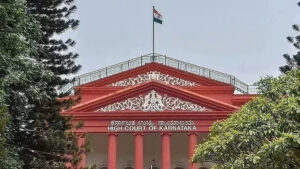In a major breakthrough against academic fraud, Hyderabad City Police has uncovered a large-scale fake degree certificate racket operating across the city. Ten individuals have been arrested in connection with this organized scam that produced and sold counterfeit educational documents to hundreds of unsuspecting or complicit clients, including job aspirants, students, and professionals. The bust not only highlights the audacity of the racket’s operations but also brings to the forefront a growing crisis in India’s academic and employment sectors.
The city, known for its thriving educational institutions and tech-driven industries, is now facing the dark shadow of academic forgery that threatens the credibility of its graduates and its position as a knowledge hub. This case is one of the most extensive fake certificate scams ever uncovered in Hyderabad, both in terms of scale and the number of institutions impersonated.
The Investigation: How It All Began
The operation began when a routine verification request by a corporate recruiter revealed inconsistencies in the academic documents submitted by a job applicant. The discrepancy was flagged to the local police, prompting further investigation. As more forged certificates surfaced in recruitment and admission processes, Hyderabad police’s special task force launched an in-depth surveillance and intelligence operation to trace the origin of the documents.
Undercover officers posed as clients seeking degrees and eventually gained access to a well-oiled network that operated out of multiple locations in Hyderabad. A series of well-coordinated raids led to the arrest of 10 individuals who were deeply involved in creating, distributing, and facilitating the use of fake degree certificates.
Seizure and Evidence: A Factory of Fraud
The raids revealed a highly organized setup, almost resembling a mini printing press tailored for academic fraud. The following items were seized during the operation:
-
Hundreds of fake degree certificates, diplomas, and mark sheets ready for distribution.
-
Computers and laptops with editable templates of certificates from various Indian universities.
-
Color printers, scanners, lamination machines, and embossing tools used to replicate holograms, university seals, and security features.
-
Fake admission records and student registers to support forged credentials.
-
Rubber stamps and forged signatures of university officials and principals.
-
Mobile phones and ledgers containing client details and transaction records.
The forged documents impersonated degrees from a wide range of institutions, including state universities, private colleges, open universities, and even international institutions. Some of the certificates were so convincingly produced that they had previously passed preliminary checks by recruiters and admission officers.
Modus Operandi: Deception for a Price
The arrested individuals ran the racket like a professional enterprise, exploiting vulnerabilities in verification processes and leveraging the desperation of candidates seeking employment or higher education. Their method of operation involved the following steps:
-
Client Acquisition: The gang targeted students who had failed or dropped out, job seekers lacking required qualifications, and those applying for international opportunities. They also received referrals from within informal job networks.
-
Custom Orders: Clients could choose from a list of universities and courses. The gang offered everything from undergraduate degrees to postgraduate diplomas, B.Ed certificates, MBA transcripts, and even fake engineering and medical credentials.
-
Document Fabrication: Using sophisticated design software, the accused would replicate official formats, include university logos, and even produce mark sheets with customized grades and exam roll numbers.
-
Payment and Delivery: Each certificate came at a price—ranging from ₹30,000 to over ₹2 lakh, depending on the type of degree and the urgency. Payments were made in cash or through digital wallets, with the documents delivered in person or via courier.
-
Verification Manipulation: In some cases, if an employer or institution initiated background checks, the accused provided fake helpline numbers, email addresses, or forged confirmation letters to support the documents’ legitimacy.
Wider Implications: Undermining Education and Employment
This racket is not just a case of forgery; it represents a serious threat to the foundation of merit-based education and employment in India. When fake degrees are used to secure jobs—especially in critical sectors like healthcare, education, and government administration—it results in the placement of unqualified individuals in roles that affect lives, policy, and development.
The existence of such a racket in a city like Hyderabad, which is home to many reputed educational institutions and global corporations, also risks damaging the reputation of legitimate students and professionals who work hard to earn their degrees.
Furthermore, forged academic credentials undermine trust between educational institutions and recruiters. Many companies rely on the authenticity of submitted documents during the hiring process. When these documents are compromised, it leads to distrust, longer verification times, and stricter hiring policies that may penalize even genuine applicants.
Legal Action and Further Investigation
All 10 individuals arrested have been charged under multiple sections of the Indian Penal Code, including:
-
Section 420 – Cheating and dishonestly inducing delivery of property
-
Section 465 – Forgery
-
Section 468 – Forgery for the purpose of cheating
-
Section 471 – Using forged documents as genuine
-
Section 120B – Criminal conspiracy
The police have stated that the investigation is still underway, and more arrests are likely. They are currently tracking the buyers of these fake certificates, many of whom are suspected to have used them to obtain employment or admission into higher education programs. Employers and universities have been urged to come forward with any suspicious documents for cross-verification.
Additionally, the forensic analysis of seized devices is expected to reveal a broader network, including possible insider involvement from certain educational institutions.
Systemic Flaws and Need for Reform
This racket has once again exposed the vulnerabilities in India’s academic documentation and verification systems. Several factors contribute to the proliferation of such scams:
-
Lack of centralized verification systems for academic credentials.
-
Over-reliance on physical documents instead of digital, tamper-proof certificates.
-
Weak enforcement of background checks by some private recruiters and agencies.
-
The sheer desperation among youth for degrees as a passport to employment and migration.
To prevent the recurrence of such scams, several reforms are urgently needed:
-
Implementation of a National Academic Credentials Repository: A centralized and accessible database of all genuine degrees issued by Indian institutions.
-
Mandatory Digital Verification: Employers and universities must adopt e-verification of academic records before admission or appointment.
-
Blockchain-Based Degree Issuance: Universities should shift to issuing certificates using blockchain to prevent unauthorized duplication.
-
Public Awareness Campaigns: Students and job seekers should be educated about the consequences of using or procuring fake degrees—both legal and ethical.
-
Stronger Oversight on Educational Agents: Many rackets operate under the guise of “consultants” or “agents.” These entities must be strictly regulated, licensed, and audited regularly.
Conclusion: A Wake-Up Call for the Nation
The fake degree racket uncovered in Hyderabad is not just a case of local crime—it is a reflection of a national problem. As India positions itself as a global knowledge economy, it must first ensure the integrity of its academic and professional systems. Degrees must represent years of dedication, learning, and rigor—not mere products that can be bought off the black market.
The commendable action taken by Hyderabad City Police has exposed a dangerous criminal enterprise, but the battle is far from over. It is a call to action for universities, recruiters, policymakers, and society at large to safeguard the sanctity of education and uphold the value of merit.
Our Services – FACTS Transcripts
We at FACTS Transcripts assist in various services, including:
- Mark Sheet Transcripts
- E-Transcripts
- Duplicate Mark Sheets & Degree Certificates
- Medium of Instructions Certificates
- Attestations
- HRD Attestation / Apostille Services
- ECA (Educational Credentials Assessment)
Trusted by leading global verification organizations, including WES, IQAS, PEBC, NDEB, NASBA, CAPR, NZQA, ICAS, NCESS, ICES, ECE, eduPASS, ACEI, GCEUS, Comparative Education Services, NNAS, NCA, SAQA, QMAS, FORAC, Australian Pharmacy Council, and more.
FACTS Transcripts – The preferred choice for university document verification worldwide. We ensure a hassle-free process for obtaining your transcripts.









